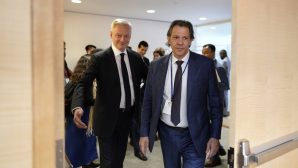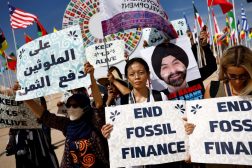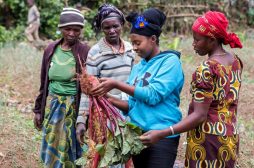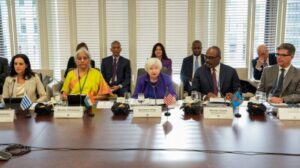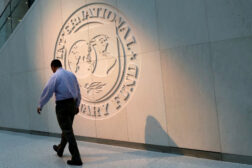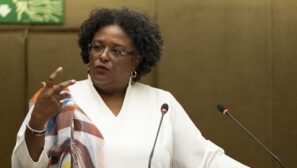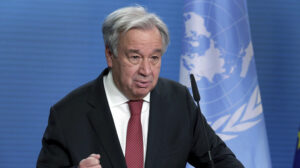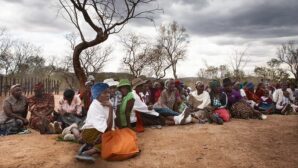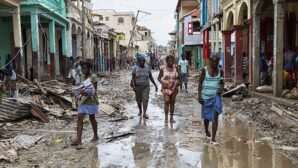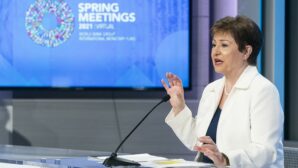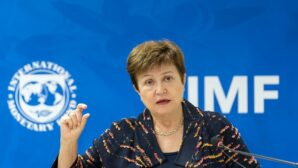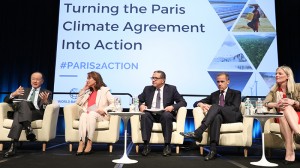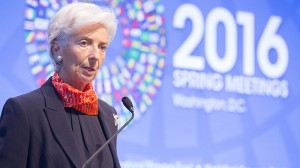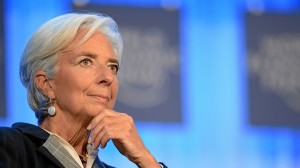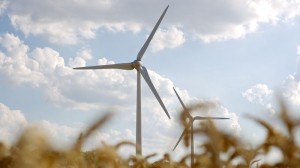IMF
How to fix the finance flows that are pushing our planet to the brink
Commercial banks are financing a huge amount of fossil-fuel and industrial agriculture activities in the Global South – they must turn off the tap
Global billionaires tax to fight climate change, hunger rises up political agenda
Brazil and France want the G20 to get behind a global minimum tax on billionaires’ wealth, also backed by IMF chief
Fossil fuel debts are illegitimate and must be cancelled
The Spring Meetings of the World Bank and IMF are a chance to transform outstanding debts for fossil fuel projects into grants for renewable energy systems
Spring Meetings can jump-start financial reform for food and climate
The World Bank and IMF have a big part to play in raising the $3 trillion needed to help countries meet global development goals and the Paris accord
Zambia’s fossil-fuel subsidy cuts help climate and kids – but taxi drivers suffer
Under pressure from the IMF, the government has redirected subsidies into education, welfare and debt reduction, leaving fuel-heavy sectors with higher costs
World Bank steering committee and US urge for reforms on climate lending
At the World Bank’s spring meeting, US Treasury Secretary Janet Yellen called for the adoption of a reform that would free up funds for climate lending.
IMF approves first batch of climate resilience loans
Five countries had loan packages approved under the IMF’s first sustainability fund, but concerns remain about whether it will boost resilience for the most vulnerable nations
IMF warns against ‘protectionism’ in rich world’s green subsidies
The US will subsidise North American-made electric vehicles, sparking responses from other rich countries – but there are concerns on the effects on the developing world.
Mia Mottley builds global coalition to make financial system fit for climate action
In July, Barbados’ prime minister invited leaders to a retreat to discuss plans to scale-up international finance for the climate frontlines. Now, she’s asking the world for support
UN, IMF disagree on who should foot the bill of the energy crisis
António Guterres is backing windfall taxes on “immoral” oil and gas profits, while the IMF argues costs should be passed to consumers
IMF’s resilience fund ‘out of reach’ for some nations in need
The Resilience and Sustainability Trust aims to help countries prepare for climate shocks. Bangladesh, Zimbabwe and the Philippines are among those unlikely to qualify
‘Breakthrough’: IMF develops fund to help debt-laden nations address climate risks
The IMF trust fund could be worth up to $50 billion and meet vulnerable countries’ call for support to address the triple crisis of debt, Covid and climate change
Climate vulnerability should be factored into debt relief, says IMF head
Kristalina Georgieva said the IMF was considering proposals to ensure climate vulnerable middle-income nations receive support to build back better from Covid-19
Campaigners confront IMF chief over green recovery contradictions
Analysis shows IMF advice to countries accessing Covid-19 emergency funds fails to systematically address climate risks and implicitly endorses fossil fuel subsidies
IMF endorses EU plan to put a carbon price on imports
If major emitters do not agree to a minimum carbon price, IMF chief Kristalina Georgieva said the EU was right to impose tariffs on imports at the border
World Bank, Bank of England urge speed on climate
Mark Carney and Jim Kim warn window of opportunity to reduce emissions is closing, call for greater transparency on climate risk from big business
IMF: Oil price crash delays clean energy transition
NEWS: Cheap fossil fuels could thwart development of renewables, says global lender in economic outlook
IMF calls for carbon levy on ships and planes
NEWS: Influential financial body estimates US$30 a tonne tax on emissions from international transport could have raised $25 billion in 2014
IMF to factor climate risk into world economic forecasts
NEWS: Influential finance body is mainstreaming climate concerns in move that could spotlight threats to oil exporters, say experts
Germany, Ethiopia, Mexico leaders back carbon pricing
NEWS: Six heads of state are endorsing a World Bank campaign to make polluters pay, while Paris climate text ignores the subject

